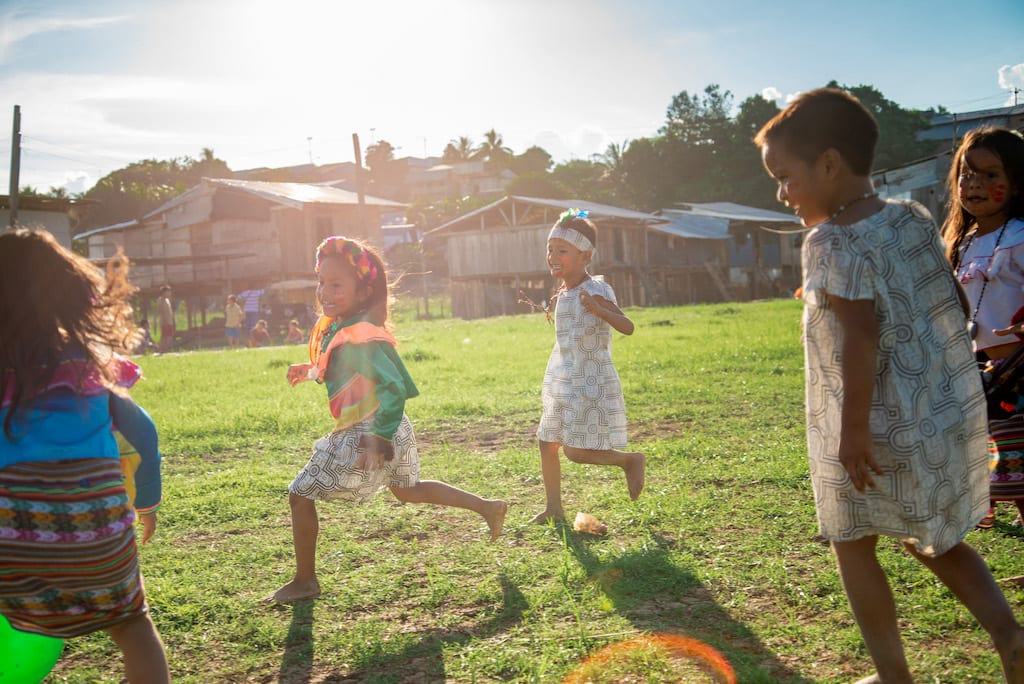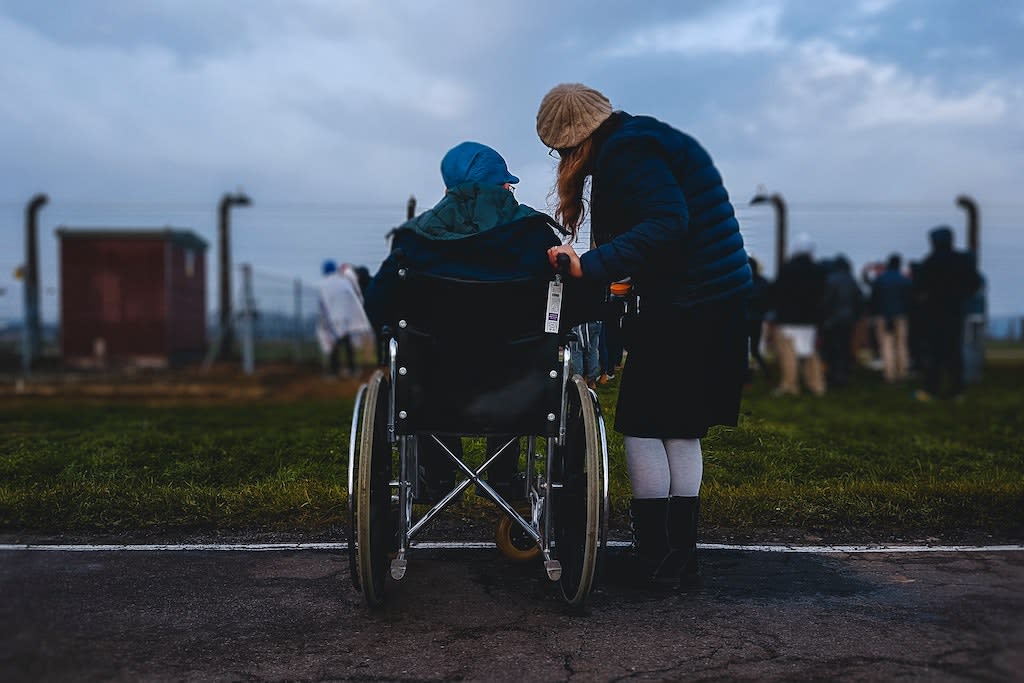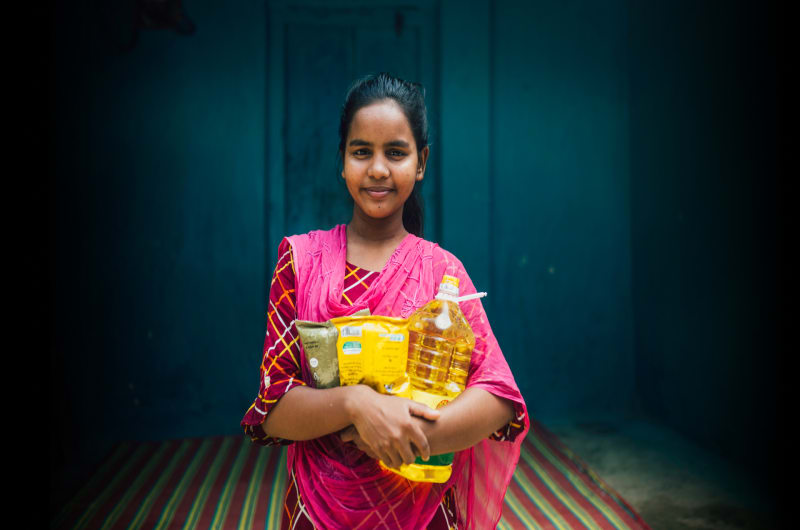People often ask us, “Why help people living in poverty in other countries when there’s poverty here in Canada?” It’s a complex question, with a lot to consider, but in many ways, it can be answered quite simply, too: Why not both?
At Compassion, our expertise is global poverty. We’re so thankful for partners in our mission who are committed to fighting local poverty. Fighting poverty isn’t just about one thing—it needs to be a holistic effort! That’s why we love to hear about Compassion supporters who also support local organizations and causes.
Today, we wanted to share some of our favourite ways to fight poverty here in Canada. Local poverty is an issue with a lot of intersecting layers. Sadly, because of a wide variety of systemic injustices, poverty in Canada often occurs based on certain demographics, such as disability, age, immigration status or racial background. You’ll see that reality reflected in this list.
We hope you are inspired to take action right where you are—to love your literal neighbours! We can’t all do everything—but we can each do something. When we see the need, feel its weight and move with compassion, we live out the kind of justice and mercy this world so desperately needs—both here at home and around the world.
1. Give to a local food bank

Food security isn’t just an issue around the world. Canadians experience food insecurity too, and the need is growing. According to Food Banks Canada, nearly two million visits to food banks were recorded in a single month in 2024—the highest ever.
Giving to a local food bank is a great way to fight food insecurity in your community. Consider running a food drive in your neighbourhood. And don’t forget: food banks do need non-perishable food donations, but often have a bigger need for monetary donations to purchase fresh food like eggs, bread, milk or vegetables—things vital to a healthy diet.
2. Welcome newcomers to Canada

Every year, Canada proudly welcomes immigrants from all over the world to come and call Canada home. Sadly, their experience of Canada as home is not equal. According to a 2021 Statistics Canada report, the poverty rate among immigrants was 9.1%, higher than the 7.5% rate for Canadian-born individuals of the same age. This disparity is even more pronounced among recent immigrants and refugees, who face systemic barriers to economic integration.
There are lots of ways to support newcomers to Canada. Perhaps some of your neighbours are newcomers—if so, consider a COVID-safe porch visit to say hello and offer any help with getting settled. There are also many local organizations, likely in your own town or city, that serve newcomers to Canada, especially refugees. Do some research to learn how you can volunteer or donate—these are meaningful ways to move with compassion.
3. Learn how to tackle homelessness

Homelessness is perhaps one of the first issues that comes to mind when we think about local poverty in Canada. There are so many ways we’re used to responding: volunteering at a soup kitchen, giving money to someone asking on a street corner, donating to a homeless shelter. These are great ways to respond to homelessness! But are there things we’re missing as we’ve perhaps become desensitized to the issue?
Consider learning from local housing advocacy groups. Get involved with shelters and organizations that journey with people experiencing long-term homelessness. Find an organization helping individuals transition into permanent housing and learn how you can help. Going beyond short-term aid to long-term support is how we create lasting change.
4. Support organizations serving vulnerable kids and youth

Children and youth are at the core of Compassion’s ministry around the world because we know they are the most vulnerable when it comes to poverty. That’s no different here in Canada, which is why local organizations that serve vulnerable kids and youth are so important!
Find organizations to support that are committed to serving kids for the long haul—who, like Compassion, know that to change a child’s life, you need to journey with them from womb to workforce. Consider volunteering to invest long-term in a child or teen’s life through mentorship or giving regularly to a local organization to support their ongoing work with kids and youth.
5. Learn about issues facing Indigenous communities

Indigenous children of the Shawi tribe in Peru who are part of Compassion’s program run by a local church in their community.
The Canadian Poverty Institute writes that Indigenous people in Canada experience the highest levels of poverty. One in four Indigenous people in Canada lives in poverty and four in 10 of Indigenous children in Canada live in poverty. Indigenous people in Canada and around the world have been systemically marginalized for many generations, leading to unjust issues like poverty amongst Indigenous communities.
Learning about how to take action to address systemic injustices facing Indigenous communities is especially important work for non-Indigenous Canadians to do. Organizations like Mennonite Central Committee Canada, Christian Peacemaker Teams and the Christian Reformed Church have resources to help Christians learn and take action.
6. Support and raise awareness for people living with disabilities

According to Statistics Canada, people living with disabilities in Canada are more likely to live in poverty than those who don’t live with a disability. It’s a sobering reality that highlights the importance of continuing to create a more inclusive and accessible society.
Get involved with organizations that support people living with disabilities. Get educated on how you can stand in solidarity with the disability community, such as advocating for inclusive policies at your church, school, workplace or wider community. Learn how you can practically support your disabled friends and neighbours. These small acts of kindness are powerful ways to live out compassion.
7. Learn from local activists

Hot-button issues at the provincial and national levels often get all the attention. But in communities across Canada, local activists are doing important work to raise awareness and action for local issues.
Is there an issue in your community that you care about, particularly regarding local poverty? Learn what local advocacy groups might already be addressing it and get involved. Listen to activists who have been at it for much longer than you. Learn about how your municipal government works to understand how you can be a more effective advocate. The big, sensational issues might get all the airtime, but small local issues often have the biggest impact!
8. Get involved with your local church

Just like our 8,000 local church partners around the world, we know that local churches here in Canada do so much every day to love their neighbours and address poverty in their local communities. If you want to fight local poverty, there’s likely a way to get involved through your local church.
If not, consider leading the charge by starting an initiative in your church to get involved locally and reach your neighbours experiencing poverty. Whether here or around the world, we love seeing churches get empowered and equipped to make a difference.
This Canada Day, let’s move with compassion—not in one direction, but in every direction. The call to care isn’t either local or global—it’s both. Because poverty wears many faces, right here in our communities and across the world.
When we open our eyes to the need around us, feel its weight and choose to act, we reflect the love of Christ in powerful ways. Whether it’s through a local food bank or a child sponsorship, your compassion makes a real difference.
Let’s be the kind of people who build up our nation and look beyond it. Because love doesn’t draw borders. It moves beyond them.





